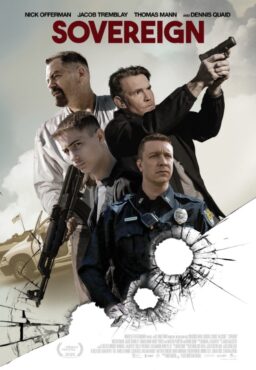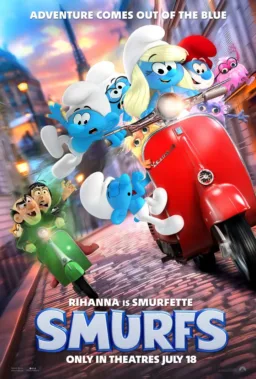The good news for Holly Hunter must have been that Jane Campion, that intense and gifted director from New Zealand, wanted her to play the lead in “The Piano.” The bad news, perhaps, was that the character never utters a single word onscreen. The heroine, named Ada, arrives on a desolate New Zealand coast with her daughter and her piano, and communicates only through one or the other of them. How did you take that, I asked Hunter one day last May at the Cannes Film Festival. How did you feel when you looked for your dialogue in the screenplay?
“I kinda felt like I didn’t have to look for it,” she said. “The script was such a great read that I didn’t miss it at all. And actually, as we began shooting the movie, I forgot that I wasn’t speaking. It really wasn’t an issue once I learned the sign language. Nobody even thought about it. For weeks, we would forget, and then somebody would go, ‘Wow, this is really wild.’ But it didn’t seem out of the ordinary in some odd way, because Ada’s so well described in the script.”
Right before going to Cannes, I had seen Hunter’s amazing performance in a made-for-cable movie titled “The Positively True Adventures of the Alleged Texas Cheerleader Murdering Mom.” In it, she plays a woman, based on a true story, who tries to hire a relative to kill a teenage girl, her daughter’s rival for the cheerleading squad. Hunter’s character does almost nothing but talk in “Cheerleader Murdering Mom” – rapid-fire and compulsively. If you averaged together Hunter’s dialogue in that movie and “The Piano,” you’d probably get the amount of dialogue an average character has in an average movie.
Hunter smiled at the observation.
“I think Ada, in ‘The Piano,’ is the most interior character I’ve ever had the chance to play, either on the stage or in anything I’ve done for film or TV. That was one of the things that most attracted me about it. And then after we finished shooting, I got off the plane from New Zealand and went right into playing Wanda, the Texas mom. Actually, I think Wanda is also kind of interior, but in a funny way, everything that goes on inside comes out. If you know what I mean. . .” I did. The first moment we see Wanda, there’s a sudden silence in the middle of a speech. She’s asked a question, and she freezes, and seems stuck deep inside herself, and then something triggers a response and she begins to talk quickly, as if she’d pushed her own “play” button.
“Yeah,” Hunter said. “I think in some way playing Ada helped me work on that. She kind of awakened something, hopefully, as an actor that I can use in other things. All Ada has is her privacy and her mystery, and I’m sure there are times when she’s a mystery even to herself.”
It is a truth widely believed in Hollywood that there are few good roles for women. That the men get the great roles, and the women are there for support, except of course in the slasher genre, where women get the leads – either as victims or, for that matter, as slashers. So it is a small miracle that Holly Hunter, an Oscar nominee for her work as a hyper TV news producer in “Broadcast News” (1987), was able to find two such extraordinary roles as Ada and Wanda in the same year. I wondered if that had something to do with the non-traditional places she found those roles: One in New Zealand, the other on cable TV. “Well,” she said, “I’ve made independent movies and bigger movies and TV, and I find that I do have to look in other arenas to find something that is provocative for me, and I don’t mind doing it.
“I don’t mind at all venturing off to do a television movie if it’s gonna give me something new to mess around in my mind, to turn around in. And I’ve been lucky this year. Very lucky.” She smiled. We were talking right after “The Piano” had premiered at Cannes and swept the festival off its feet. It was more or less assumed by everyone that the movie would win the Palme d’Or, the grand prize that is Europe’s most important film award.
Of course, I said, thinking out loud, if “The Piano” wins the grand prize, then that’s a mixed blessing, because it means you can’t win for best actress. Because they don’t like to give two prizes to the same movie. . . “I can’t even think about that stuff,” Hunter said. “I swear to God. If I do, it just makes me crazy.”
And so she didn’t. And when the jury announced their awards on the last night of the festival, the Palme d’Or went to “The Piano.” And the prize for best actress went to Holly Hunter.











